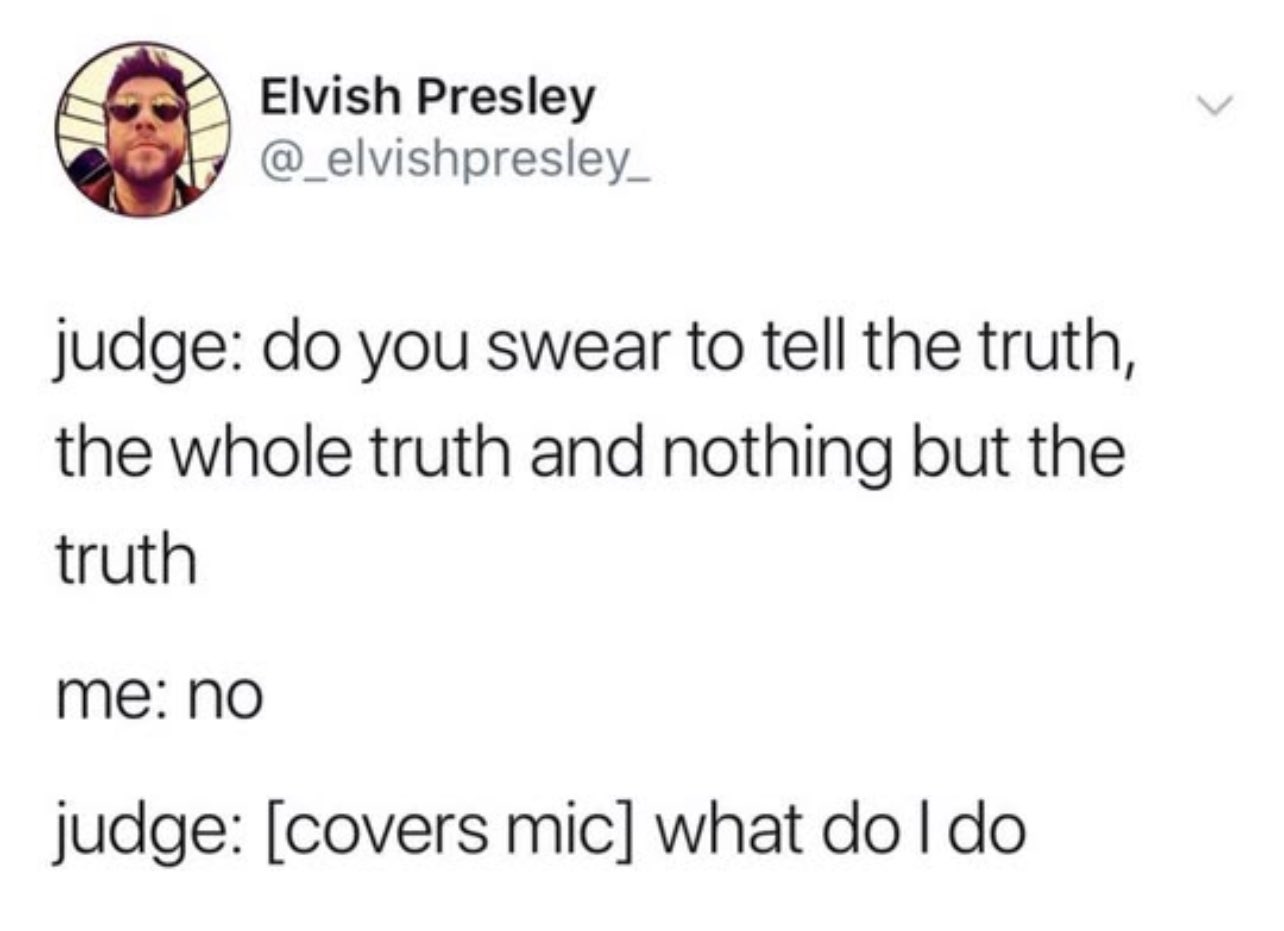this post was submitted on 29 Aug 2023
1272 points (98.4% liked)
Memes
45894 readers
1126 users here now
Rules:
- Be civil and nice.
- Try not to excessively repost, as a rule of thumb, wait at least 2 months to do it if you have to.
founded 5 years ago
MODERATORS
you are viewing a single comment's thread
view the rest of the comments
view the rest of the comments

What if you were coerced into testifying?
Then you plead the 5th. Pretty sure that's exactly what it's intended for.
You can't be forced to testify against yourself, but you can be forced to testify against others.
Exceptions are: Spouses can't be forced to testify against each other. Parents can't be forced to testify against their child and same thing vice versa.
"They can’t arrest a husband and wife for the same crime."
They can, they'll just have to find other evidence. If there's a court case with the defendants being a married couple who both refuse to testify and there's no other evidence, it's essentially the same as a court case with one defendant that's refusing to testify against themself and there's no other evidence. Both cases will result in dismissal.
The person you're replying to was quoting Arrested Development.
I was but I don't mind learning a thing or two
“I have the worst fucking attorneys.”
And therapist/lawyers don't have to testify right?
Unless they were legally obligated to report you. They can testify in regards to whatever specific topic lead to that.
i'd guess when the patient admits to have committed murder and then the therapist has to report it, right ?
https://joshuatreecounseling.us/2021/07/19/what-happens-if-i-tell-my-therapist-i-did-something-illegal/#:~:text=In%20Florida%2C%20duty%2Dto%2D,harm%20from%20a%20client%2Fpatient.
My layman's understanding is that if you say you committed murder 20 years ago, but your therapist doesn't believe you are actually a clear, present, and immediate danger to yourself or others, they don't actually have to report it. I find it hard to believe that there would be a situation where someone could admit to something like that and the therapist doesn't think they are at a reasonable likelihood to reoffend, but I guess the potential for the situation exists.
The link above is specific to Florida, but I'm sure that there are differences in law in different jurisdictions and probably even specifics at the federal level.
I am neither a lawyer nor a therapist, just a shitposter, so take all of this with a grain of salt.
Thanks, that's a huge help
But until fairly recently you could plead the 5th and they couldn't use it as proof of wrongdoing.
You still can’t use the 5th to infer anything about the defendant in a criminal case. In a civil case, the court can take a person’s refusal to answer into account.
What changed?
Some rulings that pleading the 5th can be considered cause for a warrant if not directly an admission of guilt.
The past decade or so has also weakened rights in regards to you having to plead the 5th directly, and of course the "War on Terror" led to the Supreme Court more or less saying "No, actually, torture doesn't count, plus we're going to ignore that it's been the official position of America for centuries that Constitutional rights are human rights (for a changing definition of human)."
Taken as a whole the past couple decades have severely reduced the protections the government wants to admit the 5th offers.
You mean by a court subpoena? If so then you testify or get found in contempt of court.
Or do you mean what if someone is threatened/blackmailed into giving false testimony? If that's the case then you should probably go to the police. If it's law enforcement who are coercing you then I suppose you could try to include that fact in the testimony, but there may not be much difference in that and refusing to comply with the blackmailer in the first place, in terms of your safety.
If you're coerced to lie under oath then I'd guess that still counts as perjury, but I doubt most judges would be mad at you for it; they'd shit fury all over whoever was coercing you.
You speak to your lawyer ahead of time and they discuss the issue with the judge.